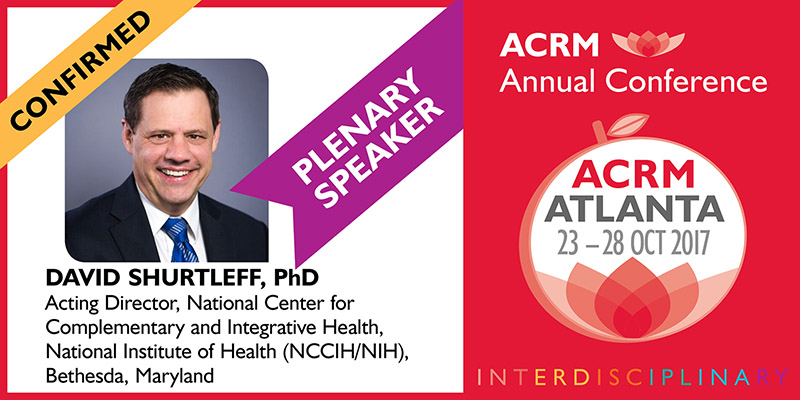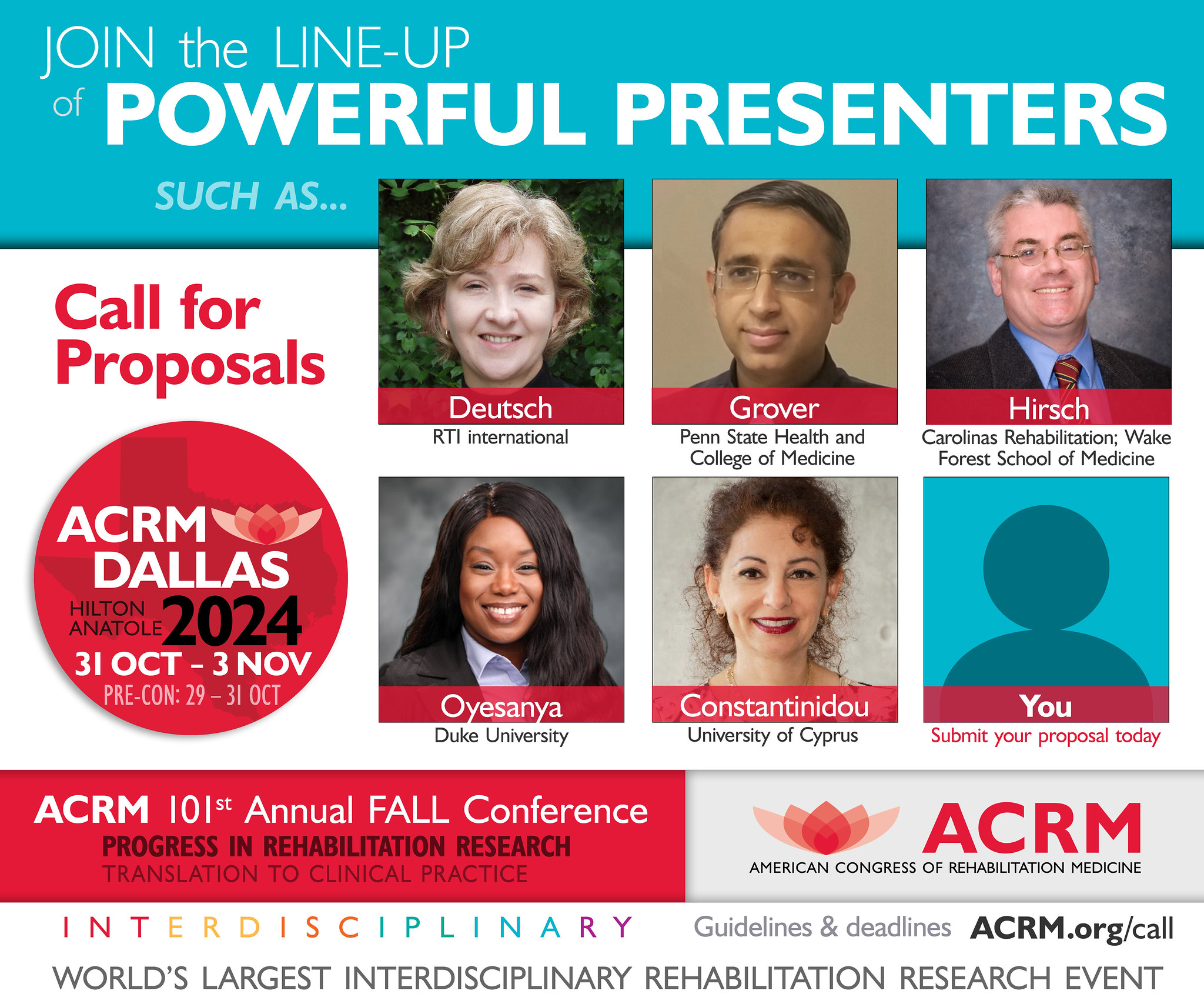
Plenary II
“Integrative Medicine and Progress in Rehabilitation: People Really Matter”
THUR 26 OCT // 8:15 AM – 9:30 AM
See this session in the Online Program here >>>
PRESENTER
David Shurtleff, PhD
Acting Director, National Center for Complementary and Integrative Health, National Institute of Health (NCCIH/NIH), Bethesda, Maryland
DESCRIPTION
Focus Area: Cross-Cutting
It is widely recognized that our health care system does too much of some things, and too little of others. Learning what works and for whom – finding the true balance between benefit and harm – is the charge to the biomedical research enterprise. Negative findings are as important a product of evidence-based medicine as the positives. Two examples will be explored: Care of the elderly and back pain management.
Critical examination of common health care practices in these areas is yielding surprises; careful examination of data from observational studies and large scale randomized trials is frequently finding less benefit than expected (or even harm) of widely used drugs, procedures and other health interventions; and in some cases a more favorable benefit to harm ratio of gentle ‘old-fashioned’ approaches that come from outside the mainstream. Critical is building a team with the patient at the center. Less emphasis on technology. More emphasis on people.
Nevertheless, translation of this evidence into good care remains problematic. Increasingly it is understood that the answers will lie in part with greater patient engagement and shared decision making. Integrative medicine practitioners are defining an innovative style of practice that provides a model for greater teamwork and more openness to the patient’s voice. Health care decision making needs to more effectively marry the insights that come from evidence-based medicine with the individual values of each patient. Integrative practitioners tap into an interest of patients in greater involvement and often in less use of technology. While the input and expertise of the health care practitioner is essential for good care, so is an effective team and active, partnership with the patient and the flexibility to listen to and adapt to the patient’s concerns.
Learning Objectives:
- Understand the processes behind the development of evidence based medicine
- Be able to name examples where clinical practice and evidence are not consistent
- Understand the evidence for mind body therapies in management of chronic pain
ABOUT Dr. Shurtleff
David Shurtleff, PhD, is Acting Director of the National Center for Complementary and Integrative Health (NCCIH), performing a wide range activities aimed toward directing, and implementing a program of research that builds a scientific evidence base about complementary and integrative health approaches that advances fundamental knowledge, and informs decision making by the public, by health care professionals, and by health policymakers. Dr. Shurtleff’s 22-year career at the National Institutes of Health (NIH) has focused on providing leadership and fostering an extensive research portfolio in the basic behavioral and neurosciences—cognitive studies, behavioral economics, decision theory, and risk-taking—and a broad spectrum of research that has contributed to cutting-edge research related to drug abuse, addiction, and their treatment. Prior to becoming Acting Director, NCCIH, Dr. Shurtleff served as the Deputy Director of NCCIH. Prior to joining NCCIH he served as the Acting Deputy Director of the National Institute on Drug Abuse (NIDA). At NIDA, he helped develop, implement, and manage the Institute’s broad grant portfolio covering basic cellular, molecular, and systems neurobiology as well as behavior, treatment, medication development, clinical neuroscience, clinical trials, prevention, and health services research. Prior to joining NIDA, Dr. Shurtleff was a research psychologist at the Naval Medical Research Institute in Bethesda, Maryland, where he conducted basic behavioral, electrophysiological, cognitive, and field research on a variety of issues related to cognitive performance, environmental stress, and peripheral neuropathy. He also served as a research fellow at the Walter Reed Army Institute of Research in the Department of Medical Neurosciences. Dr. Shurtleff holds a B.S. degree from the University of Massachusetts. He received his M.A. and Ph.D. degrees in experimental psychology from American University. He has received various honors and awards including several NIH Director’s Awards.
REGISTER ONLINE HERE or Register by Phone: +1.703.435.5335
ACRM Annual Conference, Progress in Rehabilitation Research (PIRR#2017)
CORE: 25 – 28 OCT 2018 // HILTON ATLANTA, USA // PRE-CONFERENCE 23 – 25 OCT
REGISTER ONLINE HERE or Register by Phone: +1.703.435.5335




*For the latest programming info, schedule, session and faculty details, and room locations, please see the Searchable Online Program & Scheduler and/or the ACRM App. Although significant changes are not anticipated, the schedules, sessions, and presenters posted on this website are subject to change.









